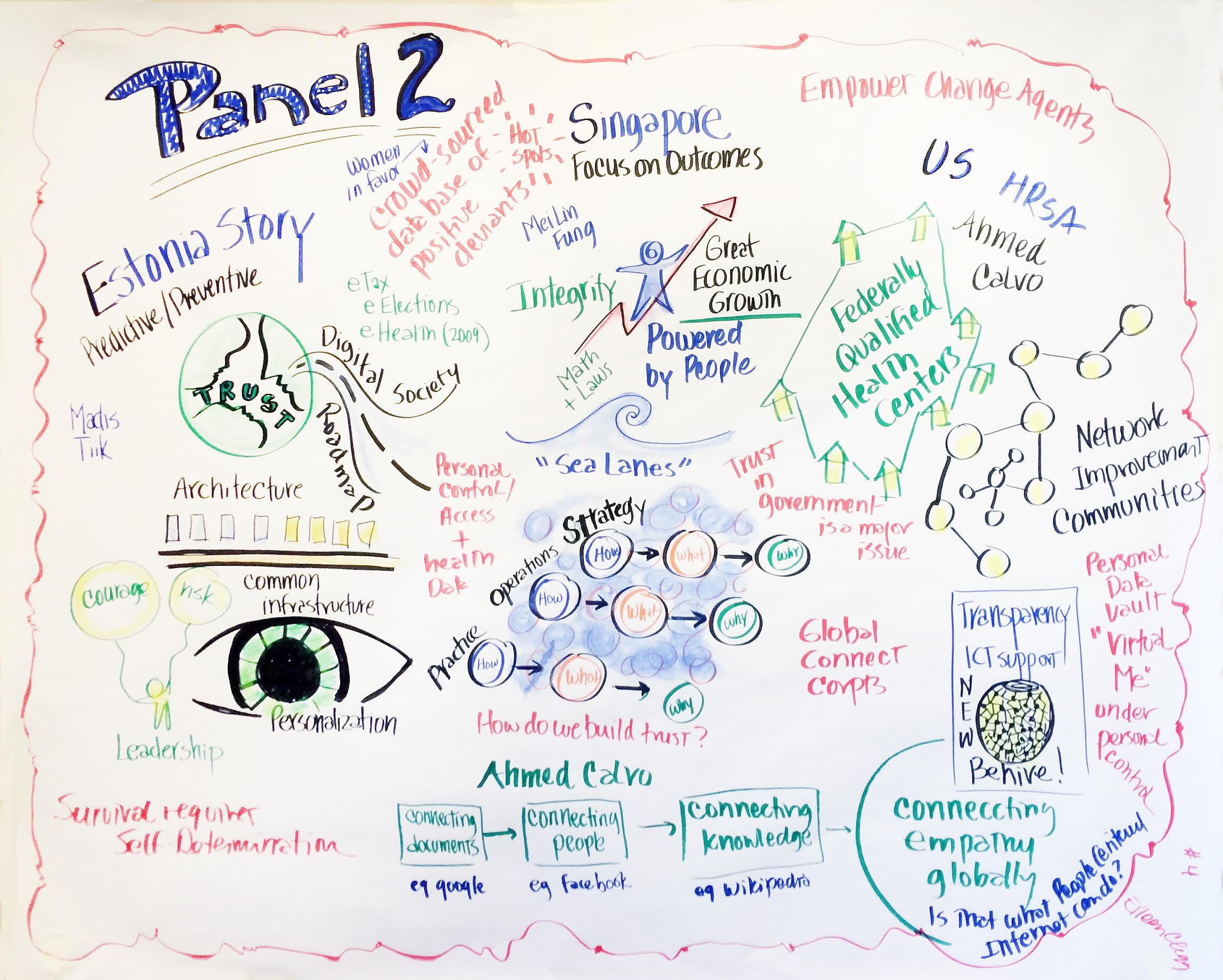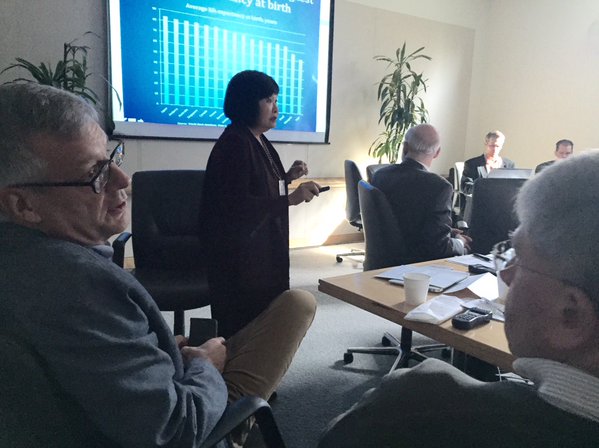|
![]()
| D1-2: Case Study Health & Internet Innovation Event1 #409678 Moderator: John Mattison, Estonia – Madis Tiik, Tallinn University, Singapore – Mei Lin Fung, US – Ahmed Calvo, Stanford Haas Center for Public Service. | 
- Personal control of access plus use of health data is important.
- How do we ensure trust is sustained?
- We need transparency without obfuscation - ownership of data needs to be both legalistic and practical
- Trust in government is a major challenge to implementing health care systems.
- Agents of change must have incentives to break through silos to make change - with more empowerment of individuals so that we don't crush individual views.
- Speed to scale of implementation of online healthcare system requires the right incentives to promote adoption by all parties - small states and cities.
- Creating a community of interest for the family member responsible for health can enhance health literacy broadly - varies with culture
- Not everything is family centric - frequently peers have more influence on behavior change.
- It is critical to understand family influence on an individual in a culture to create and apply effective tools.
- A key to adoption of strong authentication and identification is to minimize the amount of information the government requires from the citizens.
- A data vault - virtual me - filled with health data under personal control is a good idea.
- We need community self organization - meetups - where we expand definition of community to people with common health predictors or profiles.
- Global Connect Corps - Service projects for empowering people as they get connected to business - health and financial networks - eg SEALnetonline dot org.
- TORT law in the US can both support trust and erode trust
- We need a crowd sourced database of positive deviance - PD is a formalized term focused on hot spotting - where we use open mapping of PD so that we can more clearly see how to effect change individually or collectively.
- Privacy begins where convenience ends
- Survival requires self determination.


Source: Mark Finnern, via Twitter |
+Citations (4) - CitationsAdd new citationList by: CiterankMapLink[4] Transform Health Services
Author: Nagy Hanna
Publication info: 2015 November, 28, Extracted from Nagy Hana's forthcoming book on Mastering Digital Transformation
Cited by: David Price 11:35 AM 30 November 2015 GMT
Citerank: (3) 409605Nagy HannaDr. Nagy K. Hanna is an Organizer for the Secretariat for the People-Centered Internet and an author, educator, public speaker, and global expert on digital transformation and innovation strategies. Advisor to governments, ICT multinationals, and major consulting firms on cutting-edge ICT policies and strategies.58D3ABAB, 409677D1-1: Health & the InternetModerator: Mark Cullen. San Diego BEACH - Ted Chan and James Killeen. Global Health – Stefan Nachuk63E883B6, 409695South Africa63E883B6
URL:
| | Excerpt / Summary The health sector requires extensive use of information and communication to make decisions and deliver services. The absence of timely and reliable information contributes to inefficient uses of human, facilities, and financial resources, and ultimately to poor health outcomes. Making health systems more efficient and responsive requires seamless, sustainable, and secure data and information exchanges at all levels of the health system. |
|
|